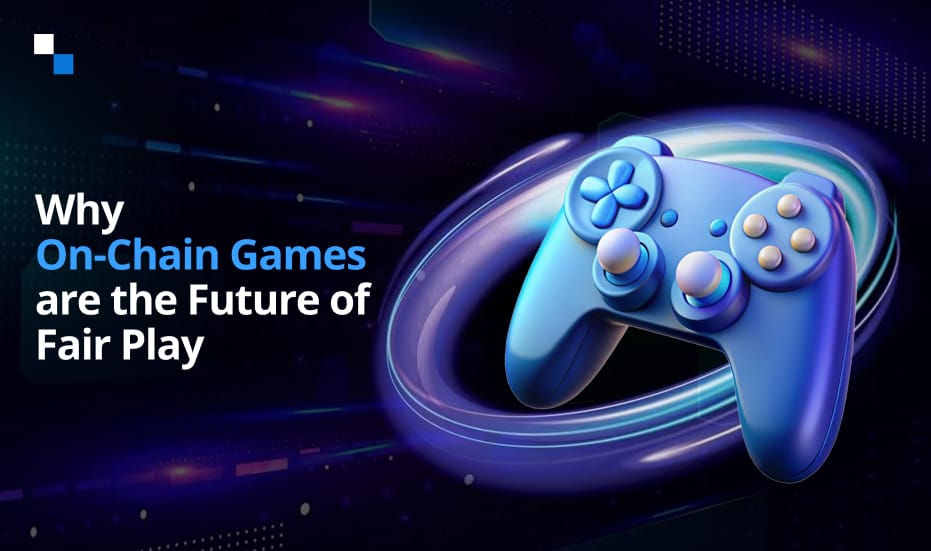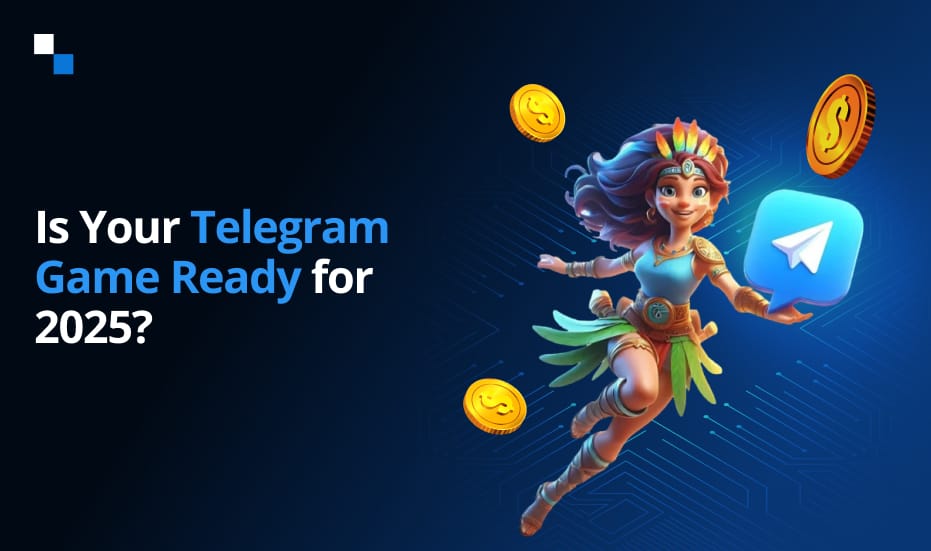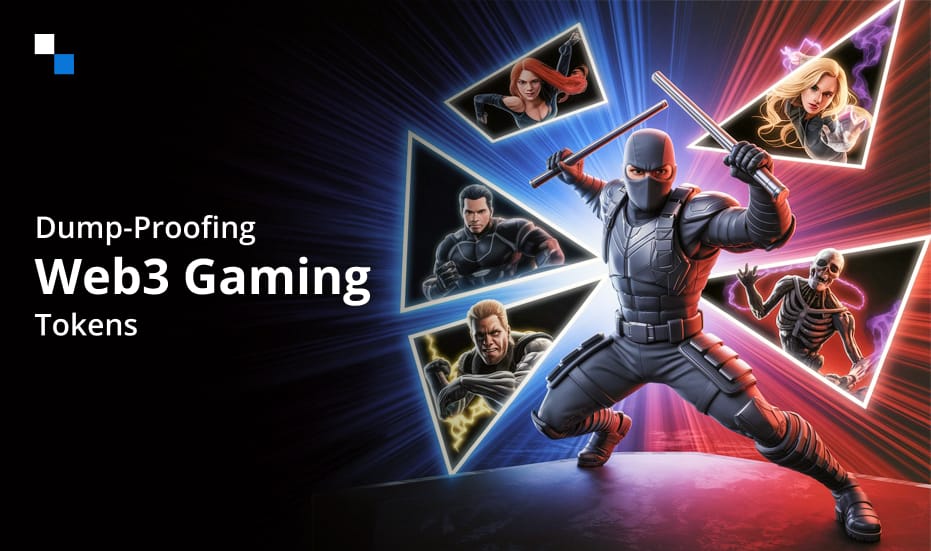
The Business Case for IP Tokenization Development Services in the Music Industry
June 10, 2025
Top 10 AI Agent Development Companies in the USA
June 10, 2025In the current gaming industry shift toward decentralized ecosystems, smart contracts have quickly become a digital backbone for player-owned assets, tokenized rewards, and transparent game mechanics. In blockchain-based games, these self-executing contracts dictate various important functions and services of the in-game experience. Thus, their security is paramount.
In comparison to traditional games, where server-side logic is updated post release and ultimately dependent on the integrity of the game’s hosting, smart contracts deployed on a blockchain ecosystem provide certainty of state at any given moment in time. With any programmatic capability, whether creating and maintaining smart contracts, a single code error or omission can lead to significant and irrevocable damage, including, but not limited to, token theft, game issues or imbalances, or loss of some or all financial system value. With millions of dollars being transferred to and from games and their ecosystems, smart contract flaws and vulnerabilities can lead to poor gamer experiences and trust erosion with the game, developer, platform, or ecosystem.
Ensuring strong smart contract security within a blockchain game development studio is a vital safeguard to protect users, maintain proper platform parameters, and protect brand integrity. As Web3, blockchain, and distributed ledger technology grow and scale, security will be an important key performance indicator differentiating between viable and non-viable products.
What Are Smart Contracts and How Do They Power Blockchain Games?
Smart contracts are self-executing code deployed on a blockchain that automatically enforce rules and perform actions without the need for intermediaries. In the context of blockchain game development, smart contracts act as the “contract” and construct a foundation for gameplay delivery and mechanics, asset ownership, and social and monetary rules for decentralized ecosystems with trustable structures. Smart contracts provide a game for issuing in-game tokens and ownership tokens, enforcement of access rights, managing battles, etc. Smart contracts ensure the establishment of acceptable transparency, fairness, and users retain control after deployment. Traditional game servers often compromise on these vital characteristics.
A reputable blockchain game development company will utilize smart contracts to provide true player ownership and development of game economies that are driven by trust. Developers build the logic around the game inside a contract that is deployed by the player to the blockchain. This ensures developers and token distribution are handled fairly and without interference from some arbitrary centralized authority or poorly conceived game development plan that exploits the limited availability of assets. It replaces server-based governance with code-based governance of the player gameplay. It protects the user experience and sets the stage for interoperable game assets in addition to, play-to-earn characteristics: essential components of the future of Web3 gaming.
Common Security Threats in Smart Contracts Used for Gaming
The rise in decentralized gaming methodologies now entails that security is a cornerstone aspect of developing extended blockchain-based gaming solutions. Smart contracts offer users the possibility of fairness, transparency, and autonomy over their gameplay, however, these contracts can introduce complex attack vectors if not written and audited properly. Once implemented, smart contracts are immutable, meaning that excessive and unidentified vulnerabilities could create irreversible negative damage from unauthorized minting of assets to complete depletion of in-game treasury reserves. It is important for any serious development team developing blockchain games to concern themselves with identifying and solving contract-level risks.
Some of the most hazardous vulnerabilities that gaming contracts can be subjected to include reentrancy attacks. Reentrancy allows malicious actors to repeatedly call functions that are allowed to execute independently before the initial execution is completed. In this situation, malfunctioning contracts allow repeat calls of functions to drain some of the assets from reward or staking pools. Integer overflows and integer underflows generally manipulate how in-game attributes are calculated and computed, resulting in asset holders being faced with scenarios like unlimited creator tokens on an in-game leaderboard.
Compromising contracts that lack access parameters expose other users to execute functions that administrators, for example, use to mint or modify game logic. Many games can also be fooled from external relief calls adding exposure. It also depends on what that external source does to the contract. It can be, for example, to randomly place a known pyramid situation that pulls together malicious contracts via exploitative transactions. Deliberately maliciously known contracts could push a value stream like you are rushing to unjustly withdraw funds from live winner pools like Twitch shares. Tricks like timestamp manipulation, front-running, and oracle exploitation erode randomness attributes unrelated to the games. Other issues seem related to auction and gaming balance, or operation adjustments that could be just having a compromising impact or nullifying play.
Best Practices to Secure Your Game’s Smart Contracts
In blockchain gaming, smart contracts manage everything from asset creation to gameplay and rewards, bringing a whole new level of importance to security. Any contract vulnerability can lead to the potential loss of assets, the exploitability of gameplay mechanics, or the loss of your users’ trust. For blockchain game development experts, adhering to standard security practices goes beyond protecting code. It is an effort to protect reputation, user retention, and a potentially long-lived, robust platform.

1. Use Role Based Access Control (RBAC)
The first line of defense is restricting critical access. By establishing roles such as Admin, Operator, and Player, you can restrict a party’s ability to execute important functionality – such as minting of tokens, changing configurations for a reward system, or upgrading a smart contract. As much as smart contracts define the roles using libraries such as OpenZeppelin’s AccessControl, we recommend defining the roles to avoid accidental or malicious misuse.
2. Utilize Proven Libraries and Frameworks
Don’t recreate the wheel when there are tried and trusted libraries available with public community audits. OpenZeppelin for example provides implementations of token standards, access controls and upgrades that you can reuse. These libraries can speed up blockchain game development and reduce the risk of introducing low-level coding errors and vulnerabilities.
3. Don’t Forget to Disable Unchecked External Calls
Smart contracts that interact with other contracts or wallets should be used with caution. Not validating external responses could open your game to logic manipulation or re-entrancy attacks. Always ensure that you are interacting with return values properly and look to use safer patterns like “Checks-Effects-Interactions”, etc.
4. Build Emergency Pausable Functions
Unpredicted glitches or malevolent actions may bring your game economy to a halt. By incorporating a pausable mechanism (pause() and unpause() functions), you allow your team to stop any contract’s functionality in case of emergencies. That gives you a vital window to investigate and push fixes without losing any more money or being exploited.
5. Thorough Unit and Integration Testing
Testing is imperative before deploying any contract. Unit tests validate individual pieces, while integration tests verify the overall behavior of those pieces in a live-game environment. A good suite of tests will ensure any edge cases handle appropriately, and mitigate regressions when updating, scaling, or patching in-game logic and reward systems.
6. Utilize Static and Dynamic Analysis Tools
A tool set such as Slither, MythX, and Certora enables developers to evaluate complex security defects, such as overflows, reentrancy issues, and erroneous permissions at the configuration level. These tools provide additional risk-reducing insights on both static (code) analysis and dynamic (runtime behavior) and are able to provide further insights than traditional human review can provide.
7. Setup Time Locks for Admin Actions
For functions that encompass upgrades, token transfers (withdrawal, deposit), or governance changes, time locks represent a buffer period before execution. This buffer time allows for last-minute review, rollback, and community input, and it is especially imperative in a game context, where participants are reliant on stable, predictable contract behavior.
8. Secure Randomness with Verifiable Sources
Random number generation is crucial in gaming, whether it is determining loot boxes, what will happen in combat, or an event. Contract developers will commonly use block timestamps and hashes as their source of randomness. However, block timestamps and hashes can be manipulated by miners. Instead of relying on block timestamps or hashes, consider using verifiable randomness solutions such as Chainlink VRF to ensure your game can be fair and not subject to player exploitation within their game when players can manipulate and exploit predictable outcomes.
9. Monitor Post-Deployment Activity in Real-Time
Once the project has launched, it is critical to monitor its contracts in real-time using Medium and long-term tools like Tenderly, Forta, or Blocknative. These services can alert you to anomalous behaviors, gas spikes, token transfers, and unauthorized role assignments in a timely manner; enabling development teams to respond before an incident escalates.
10. Carry-out Independent Third-Party Security Audits
Even the best internal teams miss vulnerabilities. By hiring trusted audit firms to evaluate your smart contracts, you’re accessing outside expertise and credibility. Publishing those audits also helps to reassure players and investors that your blockchain game development company takes security and transparency seriously.
Future Trends: AI-Powered Audits, Formal Verification, and More
As the complexity of smart contracts in Web3 ecosystems increases, the future of blockchain game development will be directed by intelligent automation, predictive analysis, and mathematically guaranteed security models. Although traditional code audits will remain relevant, there are also new emerging technologies that complement audits by minimizing human error and enabling game development to detect vulnerabilities before they happen. For any competitive blockchain game development company, following these trends is vital for preserving game integrity and player trust in a vibrant and financially sensitive pace.
Key emerging trends include:
- AI-Powered Audits: Machine learning models analyze smart contracts to detect known and unknown vulnerabilities faster and at scale.
- Formal Verification: Mathematical validation of smart contract logic to ensure predictable, error-free execution.
- On-Chain Real-Time Monitoring: Tools like Forta detect anomalies and threats in live contract behavior.
- Automated Fuzz Testing: Generates thousands of randomized inputs to uncover edge-case bugs in gaming logic.
- Collaborative Open Auditing Platforms: Community-driven review systems for faster, decentralized contract validation.
- Security-as-a-Service APIs: Plug-and-play security tools integrated directly into the blockchain game development pipeline.
Building Trust Through Continuous Security
Smart contracts are not just lines of code. They provide the foundational element for trust, ownership, and transparency in decentralized gaming infrastructure, and as the infrastructure matures, so do the threats, placing even greater importance on smart contract security for future-ready developers and studios. Every layer that can contribute to security, like rigorous testing, formal verifications, or AI audits, contributes to a greener and safer ecosystem. So, too, is trust established in blockchain game development, and not just by immersive gameplay experiences, by constant commitment to security.
As a worldwide blockchain game development company, Antier combines in-depth experience in traditional game development and decentralized technologies to develop end-to-end secure, scalable, and future-proof solutions. Whether a play-to-earn ecosystem, NFT-based RPG or a next-gen metaverse game, Antier ensures that smart contract security is embedded in all facets of the development process. With a full tech stack, blockchain architecture engineers with substantial experience, and a history rooted in trust and building this trust through established innovations, Antier is your ideal partner for studios and enterprises wanting to lead in the growing blockchain game development landscape.



